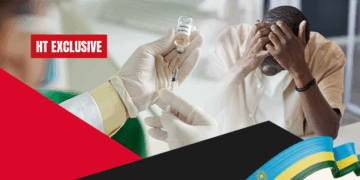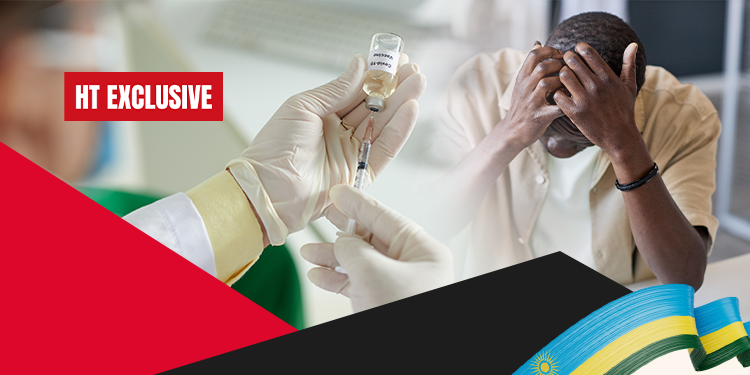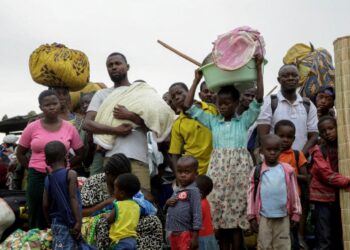By Elie Mutangana
KIGALI – Jean Bosco Mukurarinda, a doctor at the Baho Neza private clinic in Kigali, sees roughly five patients a week looking for a cure for erectile dysfunction or other sexually related issues.
He worries that most people are too embarrassed to visit a clinic or their local doctor and are being lured into the booming global market for counterfeit drugs.
“Both male and female come here looking for such treatment,” said Mukurarinda in an interview. “The fact that there is that demand gives an opportunity for criminals to scam victims.”
The Rwanda Medical Journal reported in 2020 that medicine for erectile dysfunction and other sexual complications was the most illegally traded medication in the country. It is a worldwide problem, according to international agencies.
GLOBAL CRIMINAL SYNDICATES
Interpol, the global policing agency, opened 325 new investigations and detected over 1,300 criminal websites in a multi-country operation in October 2023, which sought to dismantle criminal networks trafficking illegal and potentially life-saving drugs. Erectile dysfunction medications are the most seized medicine globally, accounting for 22 percent of seizures during a global operation, Interpol said in a statement at the time.
The operation seized pharmaceuticals worth more than US $7 million, it said.
In Rwanda, interviews conducted by the author with people using online dealers to buy medicine show a growing trend. Legal pharmaceutical companies operating online usually demand a prescription before disbursing medications.
“When I was scrolling on social media, an ad caught my eye, and I ultimately ended up buying some products from an unreliable online seller,” said Joseph Ikundabayo, 23, a university student in Kigali. He said he spent Rwf 18,000 (US $12.50) buying medicine online.
Theogene Hagenimana, a security guard working in a Kigali neighbourhood, bought two batches of tablets from an online dealer to treat his chronic headaches. His job does not include health insurance, so he went online to find relief. He bought the tablets for Rwf 38,000. Hagenimana said he later discovered the tablets were food supplements.
“I bought a package containing tablets from an online dealer,” said Hagenimana. “He told me about the tablets, but finally I realized that they were food supplements when I consulted a pharmacist,” he said.
BIG Growing Problem
Rwanda established the Food and Drug Administration in 2018 to regulate products, including medicine and food supplements.
Marie Claire Isingizwe, a communication officer at the Rwanda FDA, acknowledged that the illegal pharmaceutical trade was a growing problem.
“We conduct monitoring over premises and product compliance as we are mandated to do, to protect quality and safety in the health sector,” she said. “Throughout the years, numerous unlicensed premises and individuals were hunted and cracked down on multiple times.”
In 2024, the operations of about 20 pharmacies located in different parts of the country were suspended for failing to have the proper documentation, said Isingizwe.
She emphasized the importance of campaigns to educate consumers about the dangers of dealing with unlicensed vendors. Recently, the FDA recalled a batch of aspirin and halted the distribution and dispensing of the medication over quality concerns.
When asked about illegal online dealers, she said: “Normally, we don’t enforce compliance alone. There are other partners, such as the National Police, that we collaborate with.”
Isingizwe added: “So far, concerted efforts … are being applied to crack down on such malpractice.”
WHO Says Many Dying Annually
The World Health Organization has estimated that fake anti-malaria drugs kill 100,000 Africans a year and the black market deprives governments of 2.5–5 percent of their revenue.
According to the World Health Organization, an estimated one in 10 medical products in low- and middle-income countries is of poor quality or falsified. Anti-malarial drugs and antibiotics are among the most commonly reported substandard and falsified medical products, the WHO said.
Fake medicines often contain wrong or toxic ingredients, which are lethal and pose a growing health threat worldwide, especially in developing countries where drugs are sold to treat conditions such as malaria, tuberculosis, and HIV.
In March 2019, the WHO raised alarms over fake meningitis vaccines in Niger and fake hypertension drugs in Cameroon. In August, a fake version of the antibiotic Augmentin was discovered in Uganda and Kenya, it said.
The report also warned that pharmaceutical syndicates were becoming more sophisticated.
“The rise in the online sales through unauthorized sites has further exacerbated the issue, allowing falsified products to reach consumers more easily,” the WHO report said.
Claude Ishimwe, a tax strategist and legal consultant in Rwanda, said cases of illegal trade threatened government revenues.
“Although medicine and pharmaceuticals are exempt from value-added tax (VAT), pharmacies pay normal tax. When pharmacies operate without paying taxes, they are not recognized,” Ishimwe said.
The Anti-Smuggling and Organized Crimes (ASOC) unit of the Rwandan Police occasionally parades suspected smugglers in public and showcases illegal medicine smuggled into the country via neighbouring countries, such as Uganda and Tanzania.
Last year, Uganda and Kenya worked together in an operation code-named “African Star” to combat trafficking of illegal medicine. The operation seized consignments involving 92 unauthorized and illicitly manufactured pharmaceuticals for distribution throughout East Africa, they said.
This project received support from the Thomson Reuters Foundation as part of its global work aimed at strengthening free, fair, and informed societies. Any financial assistance or support provided to the journalist has no editorial influence. The content of this article belongs solely to the author and is not endorsed by or associated with the Thomson Reuters Foundation, Thomson Reuters, Reuters, nor any other affiliates.



































